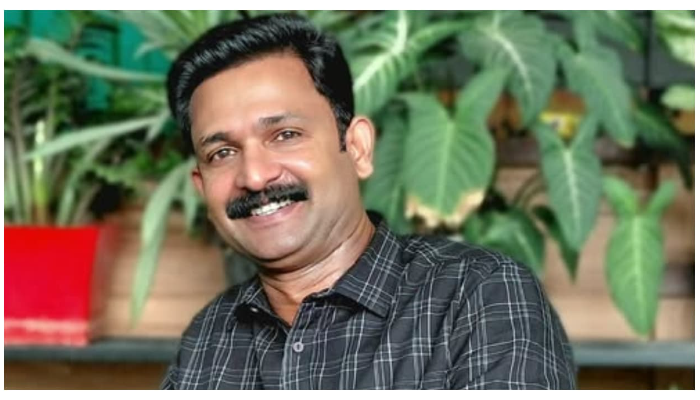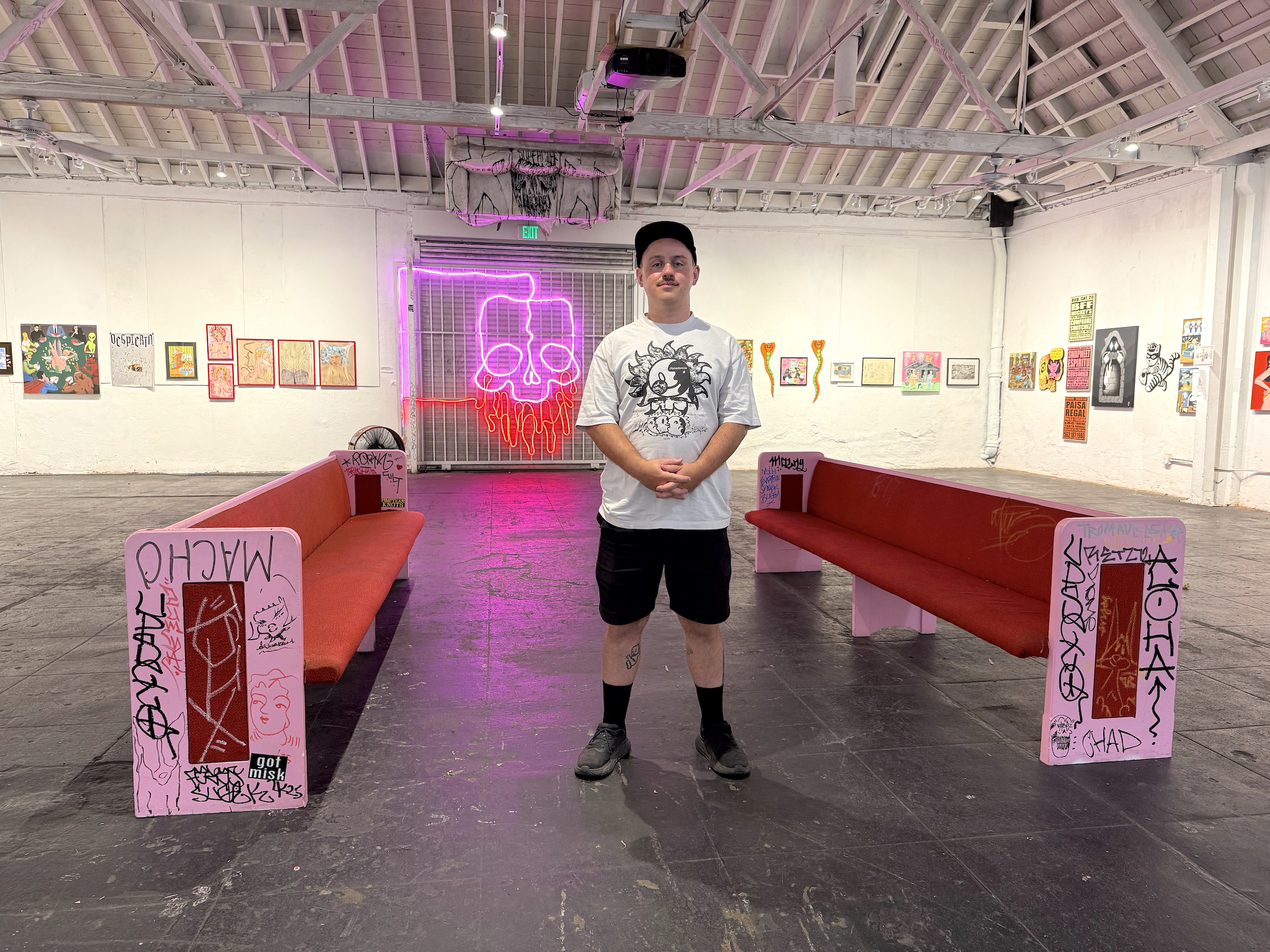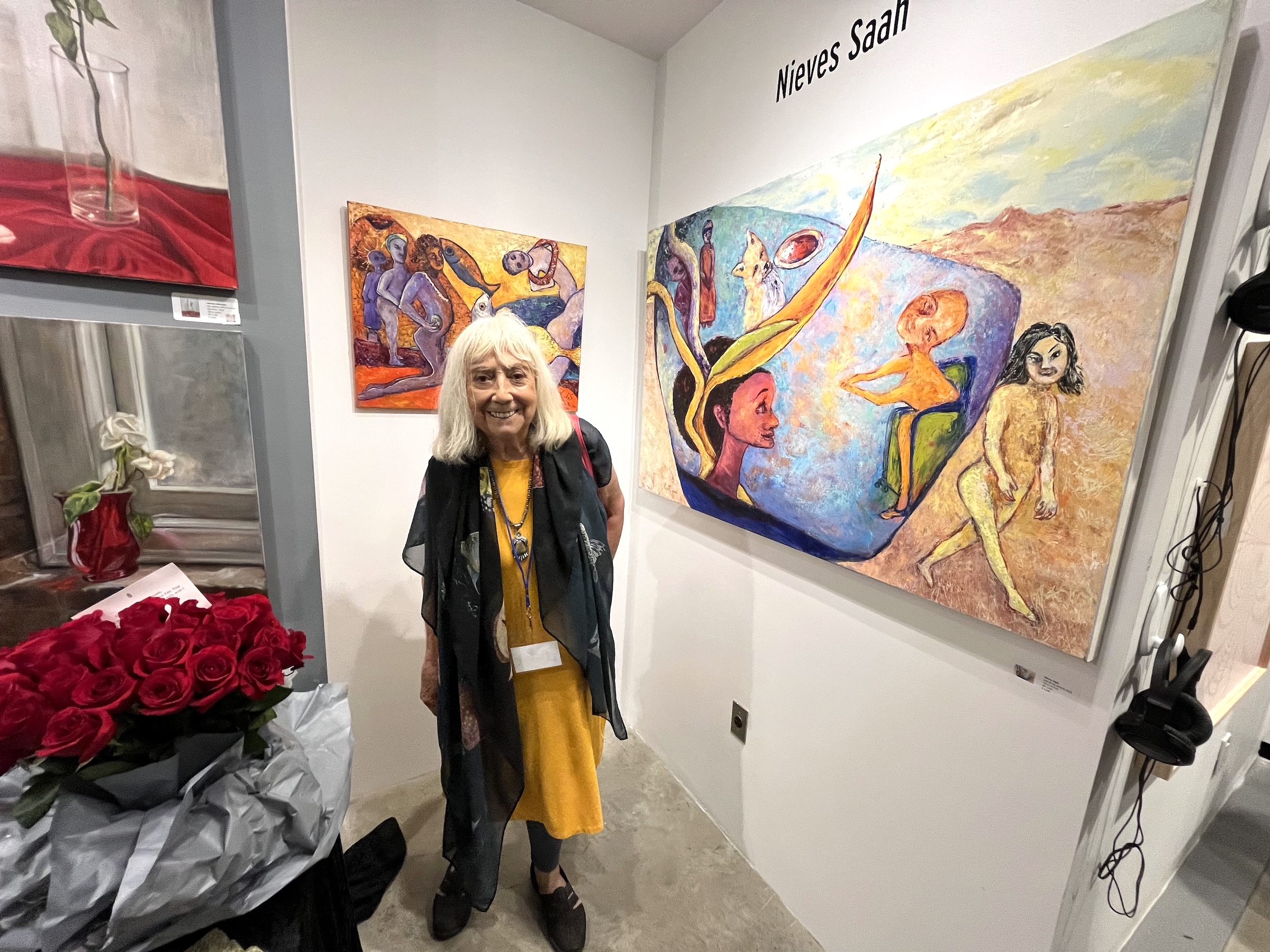Who was Zubeen Garg, why lakhs of people are paying him last respect: Read about Assam’s biggest cultural icon who left this world too early
Guwahati on Sunday witnessed an unprecedented scene, lakhs of people lining up on the both sides of the road from the airport to the city. Everyone just wants to do one thing, to catch a final glimpse of the man whose voice had been the soundtrack of their lives. Thousands of people surrounded the vehicle transporting the mortal remains of singer Zubeen Garg to his residence in Kahilipara, creating a massive unannounced procession, and slowing down the schedule by several hours. 52-year-old Zubeen Garg – a singer, composer, actor, filmmaker and activist, and Assam’s biggest cultural icon – died suddenly in Singapore on Friday. He was vising Singapore to attend the North East India Festival, which now has been called off. On Friday, he had gone on a yacht tour along with around 18 people. They stopped the vessel at a place and jumped into the water to swim. Zubeen was initially wearing a life jacket, but later took it off as it was not fitting properly. During the second swim without the jacket, he became motionless, and the yacht crew immediately rescued him. He was administered CPR on the yacht and at the port after returning, but was not successful. He was then transferred to Singapore General Hospital and admitted to ICU. But as he was not responding, he was declared dead. What followed was an outpouring of emotion and grieve, and sent shockwaves through Assam. The tragic demise brought Assam to a standstill, markets were shuttered on Saturday, a three-day state mourning was declared, half-yearly exams postponed, spontaneous candle-light processions were held, and people are lighting diyas in front of Garg’s portrait at every street corner in every city, town and village in Assam. This is no ordinary farewell; this is a testament to a cultural icon whose absence has carved an irreplaceable void in the heart of every Assamese. The legend's last journey continues through the streets of Guwahati.#BelovedZubeen pic.twitter.com/3zco3uZGk0— Himanta Biswa Sarma (@himantabiswa) September 21, 2025 Singapore authorities conducted an autopsy yesterday and handed over the mortal remains to Zubeen’s friends and colleagues accompanying him. The mortal remains was flown to New Delhi, from where it was transported to Guwahati. CM Himanta Biswa Sarma reached Delhi last night to supervise the entire process. It was earlier announced that Zubeen Garg will be taken to his residence in the morning, from there he will be taken to Sarusajai Stadium where people will be able to pay him last respect from 9 am till 7 pm. But, the presence of lakhs of people at the airport and on the road leading to his stadium meant that the entire schedule had to be tossed away, as the convoy reached the residence well pass 12 in the day. The sea of people gathering to pay the last respect to Zubeen Garg shows who he was form them, a living symbol of their language, culture, emotions and aspirations. For people outside Assam and mainstream media, he may be the mere ‘Ya Ali’ singer, but for people of Assam, he was the most consequential cultural figure to emerge in the state in the last three decades. Zubeen Garg was more than a singer, he was the soul of Assam, a bridge between tradition and modernity, and a fierce advocate for his homeland’s identity. Over his career spanning over three decades, he sang thousands of songs, composed music for films in multiple languages, acted in and made films, and released poetry and books – a genuinely multi-disciplinary artist. From Humble Beginnings to the Heartbeat of Assam Born Zubeen Borthakur on April 18, 1972, in Tura, Meghalaya, to a family deeply immersed in the arts, Zubeen’s early years were a melody of influences. His mother, the late Ily Borthakur, was a renowned Sattriya dancer, actress and singer, while his father, Mohini Mohon Borthakur, is a retired Magistrate, also a lyricist and poet who writes under the pen name Kapil Thakur. Garg started to sing from the age of three, his first guru was his mother. He also learnt to play several musical instruments, including the tabla and guitar. He could play over a dozen instruments, and was usually seen playing one while singing at concerts. Zubeen Borthakur spent his childhood in Jorhat, where he absorbed the rhythms of Bihu, folk music and the classical strains of Sattriya music, blending them with his innate talent for melody. By his teens, he was already a local sensation, performing at school functions and cultural events, his voice carrying the raw emotion of the Brahmaputra Valley. He had enrolled at B Barooah College in Guwahati to do BSc, but he dropped out before completing the degree to pursue a full-time career in music. His first album Anamika was released in 1992, and was an instant hit. While releasing the album, he dropped the Borthakur surname and used Garg, the name of his gotra. He was careful about creating a distinct identity for himself, with different surname, long hairs. After
Guwahati on Sunday witnessed an unprecedented scene, lakhs of people lining up on the both sides of the road from the airport to the city. Everyone just wants to do one thing, to catch a final glimpse of the man whose voice had been the soundtrack of their lives. Thousands of people surrounded the vehicle transporting the mortal remains of singer Zubeen Garg to his residence in Kahilipara, creating a massive unannounced procession, and slowing down the schedule by several hours.
52-year-old Zubeen Garg – a singer, composer, actor, filmmaker and activist, and Assam’s biggest cultural icon – died suddenly in Singapore on Friday. He was vising Singapore to attend the North East India Festival, which now has been called off. On Friday, he had gone on a yacht tour along with around 18 people. They stopped the vessel at a place and jumped into the water to swim. Zubeen was initially wearing a life jacket, but later took it off as it was not fitting properly. During the second swim without the jacket, he became motionless, and the yacht crew immediately rescued him.
He was administered CPR on the yacht and at the port after returning, but was not successful. He was then transferred to Singapore General Hospital and admitted to ICU. But as he was not responding, he was declared dead.
What followed was an outpouring of emotion and grieve, and sent shockwaves through Assam. The tragic demise brought Assam to a standstill, markets were shuttered on Saturday, a three-day state mourning was declared, half-yearly exams postponed, spontaneous candle-light processions were held, and people are lighting diyas in front of Garg’s portrait at every street corner in every city, town and village in Assam.
This is no ordinary farewell; this is a testament to a cultural icon whose absence has carved an irreplaceable void in the heart of every Assamese.
The legend's last journey continues through the streets of Guwahati.#BelovedZubeen pic.twitter.com/3zco3uZGk0
— Himanta Biswa Sarma (@himantabiswa) September 21, 2025
Singapore authorities conducted an autopsy yesterday and handed over the mortal remains to Zubeen’s friends and colleagues accompanying him. The mortal remains was flown to New Delhi, from where it was transported to Guwahati. CM Himanta Biswa Sarma reached Delhi last night to supervise the entire process.
It was earlier announced that Zubeen Garg will be taken to his residence in the morning, from there he will be taken to Sarusajai Stadium where people will be able to pay him last respect from 9 am till 7 pm. But, the presence of lakhs of people at the airport and on the road leading to his stadium meant that the entire schedule had to be tossed away, as the convoy reached the residence well pass 12 in the day.
The sea of people gathering to pay the last respect to Zubeen Garg shows who he was form them, a living symbol of their language, culture, emotions and aspirations. For people outside Assam and mainstream media, he may be the mere ‘Ya Ali’ singer, but for people of Assam, he was the most consequential cultural figure to emerge in the state in the last three decades.
Zubeen Garg was more than a singer, he was the soul of Assam, a bridge between tradition and modernity, and a fierce advocate for his homeland’s identity. Over his career spanning over three decades, he sang thousands of songs, composed music for films in multiple languages, acted in and made films, and released poetry and books – a genuinely multi-disciplinary artist.
From Humble Beginnings to the Heartbeat of Assam
Born Zubeen Borthakur on April 18, 1972, in Tura, Meghalaya, to a family deeply immersed in the arts, Zubeen’s early years were a melody of influences. His mother, the late Ily Borthakur, was a renowned Sattriya dancer, actress and singer, while his father, Mohini Mohon Borthakur, is a retired Magistrate, also a lyricist and poet who writes under the pen name Kapil Thakur.
Garg started to sing from the age of three, his first guru was his mother. He also learnt to play several musical instruments, including the tabla and guitar. He could play over a dozen instruments, and was usually seen playing one while singing at concerts.
Zubeen Borthakur spent his childhood in Jorhat, where he absorbed the rhythms of Bihu, folk music and the classical strains of Sattriya music, blending them with his innate talent for melody. By his teens, he was already a local sensation, performing at school functions and cultural events, his voice carrying the raw emotion of the Brahmaputra Valley.
He had enrolled at B Barooah College in Guwahati to do BSc, but he dropped out before completing the degree to pursue a full-time career in music.
His first album Anamika was released in 1992, and was an instant hit. While releasing the album, he dropped the Borthakur surname and used Garg, the name of his gotra. He was careful about creating a distinct identity for himself, with different surname, long hairs. After that, he released albums at regular intervals, each more hit than the previous. NK Production of Assam produced and marketed all of his earlier albums, which came in cassette tapes before transitioning to CDs and then streaming.

Some of his most popular solo albums are Maya (1994), Asha (1995), Zubeenor Gaan (1995), Rong (1996), Mukti (1997), Sobdo (1998), Pakhi (1999), Shishu (2002), Jantra (2004), Mukha (2006), Rumaal (2008), Baahi (2011), Rock (2012), Maa (2019) and Silaa (2020). Apart from these solo albums, his songs were included in thousands of other albums of other artists. Producers would include just one Zubeen’s song to market it as Zubeen’s album, which would ensure superhit status for the album. Parallelly, he also sang for a large number Assam movies.

His track “Mayabini Ratir Xur” for the movie Daag captured the ethereal beauty of Assam’s landscapes and the ache of unrequited love, resonating deeply with a youth hungry for music that mirrored their world. He had famously asked people to sing this song after his death, which have been done diligently by his fans across the state. Even CM Himanta Biswa Sarma and other officials recited song in front of Zubeen’s casket at Delhi Airport last night.
মায়াবিনী ৰাতিৰ বুকুত
— Himanta Biswa Sarma (@himantabiswa) September 20, 2025
দেখা পালোঁ তোমাৰ ছবি!
Assam will carry the weight of your immortal legacy !#BelovedZubeen pic.twitter.com/gTdT8CN0DO
He was not just a singer, he also wrote a large number of songs, and also composed songs written by him and others. Over the years, he composed and sang over 5,000 songs in Assamese alone.
He recorded an average of 800 songs a year, and thus have recorded around 38,000 songs in several languages, including Hindi, Bishnupriya Manipuri, Adi, Boro, Dimasa, English, Goalpariya, Kannada, Karbi, Malayalam, Marathi, Mising, Nepali, Bhojpuri, Odia, Sanskrit, Sindhi, Tamil, Telugu, and Tiwa, apart from Assamese.
He also produced several Assamese movies and acted in them, establishing himself as a popular film hero. He had several movies lined up, including sequels.
Zubeen Garg moved to Mumbai in mid 90s to work in the Hindi movie industry, and recorded few Hindi albums and remixes. He bought a house in Mumbai and recorded his several of his albums there.

However, his initial success in Bollywood was limited, with music directors preferring to use his voice only for high-pitch segments of songs, which was difficult for other singers but he could do it effortlessly. He soon realised that such typecasting will ruin his career, and stopped accepting such offers. Later he attained success in Bollywood. Apart from ‘Ya Ali’ from Gangster, some other famous Hindi songs are Rama Re from Kante, Jaane Kya from Pyaar Ke Side Effects, Subah Subah from I See You, Teri Tamanna from The Killer, Dil Tu Hi Bataa from Krrish 3 etc. However, he later moved back to Guwahati, saying that he didn’t like living in Mumbai.
Zubeen Garg has also given his voice for several Bengali movies. He has recorded Bengali versions of most of his popular Assamese songs.
His career shaped the musical tastes of a generation in the state. Youths aspired to become the next Zubeen Garg, and many have succeeded, carving their own place in Assam’s music industry.
Zubeen Garg’s sister Jongki Barthakur was aslo a talented singer and actor. But she died in a tragic road accident in 2002. She was travelling with Zubeen Garg’s team to perform at a cultiral event. Zubeen was also in the same vehicle initially, but switched to a different car before the accident. Zubeen often posted about her on social media.
The Cultural Icon of Assam
For the people of Assam, Zubeen Garg was not merely an entertainer, he was a cultural icon. He arrived at the musical scene in Assam when popular Assamese songs were mostly ‘inspired’ by other music, a trend also seen in Hindi film music also of the time. Zubeen Garg effortlessly blended Assam’s folk songs with modern music and instruments, and created an entire new genre of music for the state.
He was the voice that defined an era, empowering identity through lyrics that wove tales of the mighty Brahmaputra, the lush tea gardens, and the unyielding spirit of the Assamese people.
Fresh and original, his songs were always instant hits, with cassettes selling in lakhs immediately after release. He brought sale volumes to the industry unheard in the past. What elevated Zubeen to the pinnacle of Assamese cultural icons was his authenticity.
His concerts drew lakhs of people, transforming grounds into seas of swaying fans chanting his tunes. Instead of chasing Bollywood glamour, Zubeen returned to Assam to invest in local talent and infrastructure, and serve the Assamese cultural landscape.
His songs, spanning devotional bhajans, folk songs, romantic ballads, movie melodies and protest anthems, mirrored the multifaceted soul of Assam, from its spiritual depth to its socio-political fire.
Notably, he was a people’s star, was always approachable. While visiting various towns in Assam to perform, he would often sit with local youths, gossip and drink with them till early morning. Zubeen’s simplicity made him relatable, made him ‘Zubeen Da’ of everyone. Despite being a celebrity, people could relate to him as he spoke in the same manner as them.

However, he was also criticised for his casual approach to performing on stage, sometimes he was visibly drunk on the stage. He would often rudely turn down a fan for requesting a song he didn’t want to sing, and people loved him for his such behaviour, as he talked and behaved like a friend, not a star with an aura who needs to speak with dignity. He didn’t even hesitate from using swear words sometimes, which other artists can’t even think of.
He was his own person, fiercely independent. He didn’t listen to anyone. He had promised multiple times to stop drinking, only to break that promise each time. He didn’t care about his image, even his health, which took a big toll.
While maintaining his simplicity, Zubeen Garg was aware of his celebrity status and his fandom in Assam. In a candid video that has gone viral now, he was heard telling a friend, ‘nobody will care when you die, but when I die, Assam will be shut down for a week’.
Zubeen Garg was also deeply involved in philanthropy, and was very vocal about social issues. He played a role in mobilising public sentiment for social causes and used celebrity status for civic ends. He led rescue efforts during disasters such and flood, and donated generously to the needy. He listened to his conscience, speaking out on issues like language rights, identity of Assam and women’s safety.
His music became a rallying cry for Assamese people during turbulent times, including the anti-CAA protests in 2019-2020. Although he was close with top BJP leaders like Himanta Biswa Sarma and Sarbananda Sonowal, he was very critical of CAA, and was familiar face of the protests. When five people died in the protests, he sang his ‘Mrityu etiya hohoj’ (now death is easy) at a protest venue, making people extremely emotional.

He championed environmental causes, protesting deforestation and river pollution, and was an advocate for wildlife conservation.
Further, Zubeen mentored young artists, produced albums for emerging talents, and used his platform to highlight Assam’s crafts and culture. As a cultural icon, he was fearless, compassionate, and unapologetically Assamese.
Outrage with Mourning
While the entire state is mourning the untimely death, some fans are also outraged, and angry on Zubeen’s manager Siddharth Sharma and North East India Festival’s organiser Shyamkanu Mahanta. Fans allege that their negligence was the cause of the tragic death.
This is because, Zubeen Garg was facing health issues, and was hospitalised several times in the last few years. He had collapsed and had seizures multiple times, leading to hospitalisations. His heavy workload and careless lifestyle had taken a toll his health, and his fans were already worried about the same. He had to reduce the number of his public performances, and he was visibly tired after such performances on several occasions.
Therefore, people believe that Zubeen’s colleagues should not have allowed him to go to the boat trip and swimming, as any physically strenuous activity could be fatal to him.
Several FIRs have been filed against the duo at several police stations in Assam. Therefore, CM Himanta Biswa Sarmar has ordered to merge all the cases and handed over the same to the CID to investigate.
Assam govt has also requested the Singapore govt to conduct a thorough probe to see if there was any conspiracy angle behind the incident. 18 people who were present in the yacht with the singer are already being questioned by the Singaporean authorities.
While Zubeen’s wife Garima Saikia Garg has appealed people to not target Siddharth and Shyamkanu, CM Sarma said that as FIRs have been filed, they will be questioned by the police.
The Final Journey
Lakhs of people of all ages have arrived in Guwahati to pay their last respect to their beloved artist. The entire state government has been involved in the arrangements for memorable last moments. Starting from the Chief Minister himself, various cabinet ministers are supervising various arrangements.
The unprecedent number of people have meant that even the best preparations are not enough. The govt had planned to bring the mortal remains to Zubeen’s residence by earlier morning and transport the same to Sarusajai Stadium after an hour, and had announced that public would be allowed to pay the last respects from 9 AM.

However, the casket was too big to fit in any chartered flight, and they had to transport to same by an Air India flight at 4.30 AM. When the flight reached Guwahati, there was a sea of humanity, and they proceeded towards the Kahilipara with the vehicle carrying the casket. Therefore, what was meant to be a quick less than hour transport turned into an unannounced massive procession, with the journey taking over 6 hours.
The mortal remains of Zubeen Garg reached the stadium only after 2 pm today. As a result, the CM has announced that fans will be able to see their beloved singer for the whole night and then the whole day tomorrow. “Bhogeswar Baruah Stadium will remain open throughout the night today for the public to pay their respects to Zubeen. Tomorrow also, the mortal remains of Zubeen will be kept at Sarusajai for people to offer their homage,” the CM posted on social media.

Therefore, it is likely that the last rites will be performed on Tuesday.
The government has already started selecting a proper site for cremation, which will then be turned into a memorial. Such a memorial was built for Dr. Bhupen Hazarika on a plot donated by Gauhati University, where he was cremated.
The CM and the top officials of the govt visited the shortlisted sites in the Sonapur area on the eastern outskirts of the city, and one of them will be finalised after discussions with the family.





























































































































